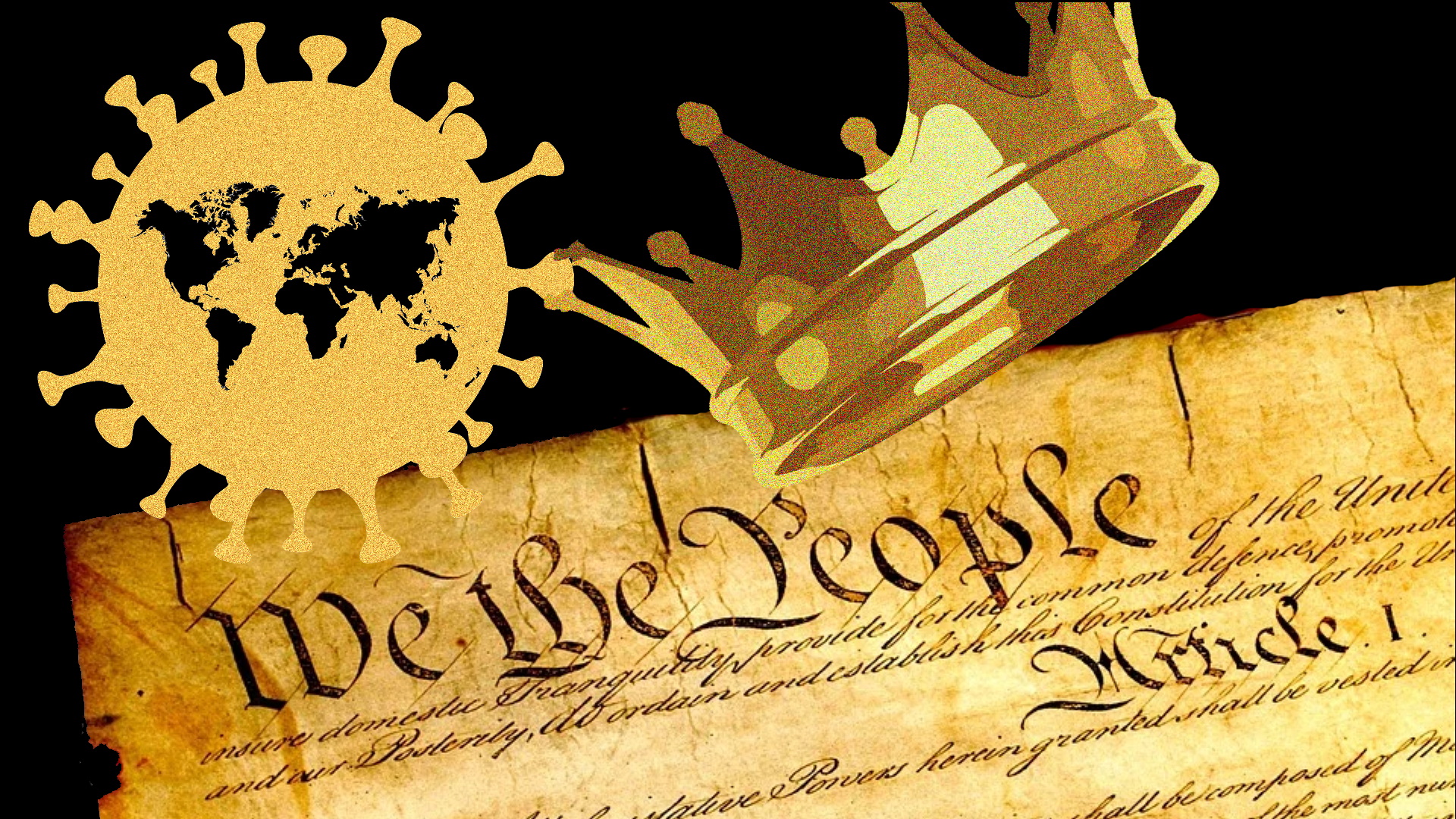
The Corona Constitution
by Matt Asher with James Corbett
posted July 4, 2020, originally recorded June 16, 2020
Bush was right: The constitution really is just a piece of paper.
So what does this mean in the age of the corona crisis, as some turn to those pieces of paper to protect the last shreds of their privacy and even their bodily autonomy?
And if constitutional fictions aren’t the solution, what is? Don’t miss this in-depth exploration of the world of 2020 as James Corbett joins Matt Asher on The Filter podcast.
Watch this video on BitChute / LBRY / Minds.com / YouTube or Download the mp4
SHOW NOTES:
Tokyo governor says lockdown in Japan is ‘impossible’
NJ governor ignores Bill of Rights in exclusive Tucker interview
How is Japan Reacting NOW? – Questions For Corbett #061
2010 Toronto G20 – “This isn’t Canada anymore.”
Harvard groups research planet-cooling aerosols
The Truth About Shadowbanning – #PropagandaWatch
[TCTL Editor’s Note: the following snippets from the transcript were sourced using YouTube’s transcript function, with some additional editing by us along with the addition of hyperlinks for your convenience.]
Snippets from James Corbett’s words during this interview:
“…Well, let’s stick to that question of the constitutionality, or lack thereof, of various actions. Because I think that that’s one good way to get a handle on that disconnect that you’re talking about.
And, in fact, there’s an interesting example from Canada specifically that I did cover at the time…
…but what does that really mean? Ultimately, five years later. he is vindicated. But on that day, in that space, that police officer, that law enforcement official, was able to declare ‘this isn’t Canada and you do not have rights’…
…and as I say if you watch Into the Fire, you’ll see many examples of that.
But that speaks to, I think, the way that you started this conversation, referring to these constitutions as just pieces of paper, raising the specter of Bush Jr. who, of course, did famously declare that the Constitution is just a goddamn piece of paper…
Well, you know what, he’s not wrong. It is just a piece of paper.
These are just pieces of paper that are used as, essentially, instruments to be wielded as necessary for political purposes and completely discarded or disregarded when it is not in the interests of the power structure to abide by it…
…That sort of incident speaks to what we’re really dealing with here, which is the fiction of government, the fictions by which government presumes to rule over people by some sort of piece of paper that gives some sort of authority to certain people to do certain things but will just disregard it when it’s necessary…
…So that, I think, speaks to this fundamental disconnect that exists between the power structure, and the myths about the power structure, and the myths about government there to protect you and to be your friend, and all of this that were given to basically placate the public…
…in our “enlightened” modern age we like to think… it’s the consent of, the will, of the people to be governed by this power that’s temporarily in charge — but we can throw them out at any given election. And they abide by these rules that are enshrined in this piece of paper — which isn’t worth the paper that it’s written on ultimately…
…But something that I keep going back to is, the very existence of this propaganda proves that the real power actually lies with the people.
…The establishment, the forces that are in charge of this process would not be so interested in investing time and money and effort and energy into propagandizing the public, into making them believe this or that narrative, if what you believed was not important.
But it clearly is what you believe and what the narratives that you are acting on, or the narratives that are telling you not to act in certain situations, are the narratives that control and placate the public.
But it also speaks to the fact that if you had a different narrative, a different perspective, that actually showed this power, this ruling power, in a different light, you would presumably be compelled to to act in a different way.
And if enough people were also seeing that from the same perspective, there’s nothing that a power structure can do against a million people rising up.
There’s something they can do when it’s one at a time, or a few people here and there, and they can be marginalized and dismissed.
But when millions of people are motivated, they will be able to overthrow any oppressive power structure that could be thought of, at least in our current time — although technologies are coming along that I’m sure could automate a lot of the process of controlling the public.
…But at least for the time being… the general will of the population is still, I think, the ultimate check.
It’s not about constitutional checks or Supreme Court or things like that…
…if people stop believing in the system as it’s been presented to them, they will revolt against it.
And there’s nothing that the power structure can do to really control or contain a widespread revolt.
That’s why I think, ultimately, the the real check on power comes from the people themselves…”
Related — Watch Dan Dick’s (Press for Truth) film Into the Fire mentioned by James Corbett in this interview:

Truth Comes to Light highlights writers and video creators who ask the difficult questions while sharing their unique insights and visions.
Everything posted on this site is done in the spirit of conversation. Please do your own research and trust yourself when reading and giving consideration to anything that appears here or anywhere else.










